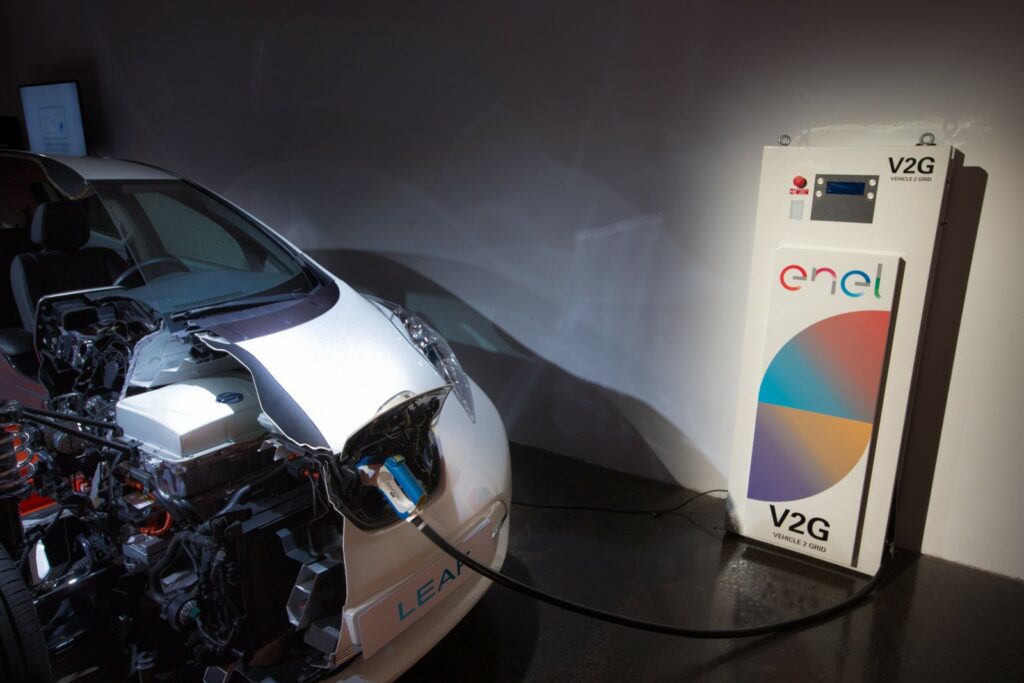Automotive giant Nissan has launched a “groundbreaking” vehicle-to-grid project alongside a new battery storage system which it says will power the firm’s UK offices by 2017.
At a press event this afternoon dubbed ‘Nissan Futures’ the firm revealed that 100 private and fleet owners of Nissan LEAF and e-NV200 electric van vehicles would be selected to participate in the trial which would enable owners to sell spare electricity in their vehicle’s battery back to the national grid.
The trial, which will be a first for the UK, will see 100 ‘V2G’ units installed at locations agreed upon between Nissan, the vehicle owner and international energy firm Enel, which will be co-managing the pilot and providing its charging technology.
Paul Willcox, chairman at Nissan Europe, said that the “landmark” trial represented a “significant step forward in renewable energy management” and promised to help “shape the future of industries, cities and societies”.
“Smart energy management is one of the biggest challenges any nation faces for the future which is why this trial is so critical in assessing the feasibility of using variable, more flexible energy sources.
“This is the first time this has ever been done in the UK and by enabling customers to sell energy back to the grid, we’re providing a financial incentive to choose the sustainable option,” he added.
Meanwhile Nissan also revealed plans to sell used LEAF battery units as a new residential battery storage system, designed to be the most affordable in the UK market.
The ‘xStorage’ solution will be available for pre-order from September this year and comprises a 4.2kWh battery. The system will have a starting price of around £3,200 and Nissan has claimed could return benefits of around £600 each year.
Nissan worked with energy technology firm Eaton to develop the product and expects to power its UK offices with xStorage systems by the end of 2017.
Late last year Nissan formed a technology partnership with Eaton to promote an ‘energy storage control centre’ developed by the latter using second-hand Nissan LEAF batteries at its research facility in Switzerland, and this project appears to be a progression from that original agreement.
“We want to make energy storage exciting and affordable to everyone, not least because it delivers real consumer benefits whilst ensuring smarter and more sustainable energy management for the grid,” Willcox added.






